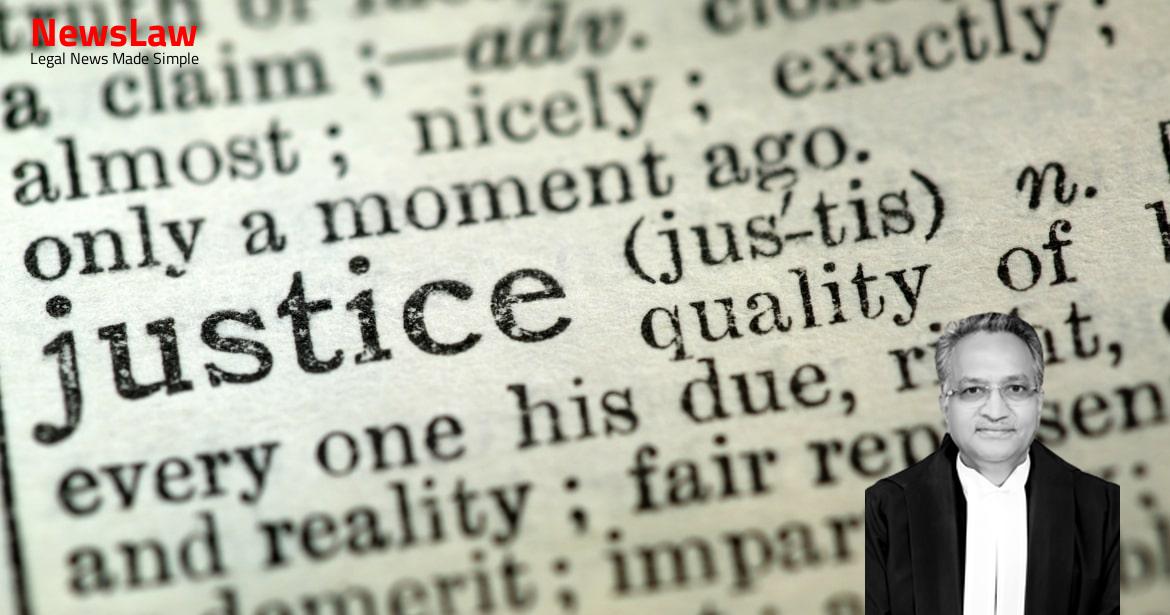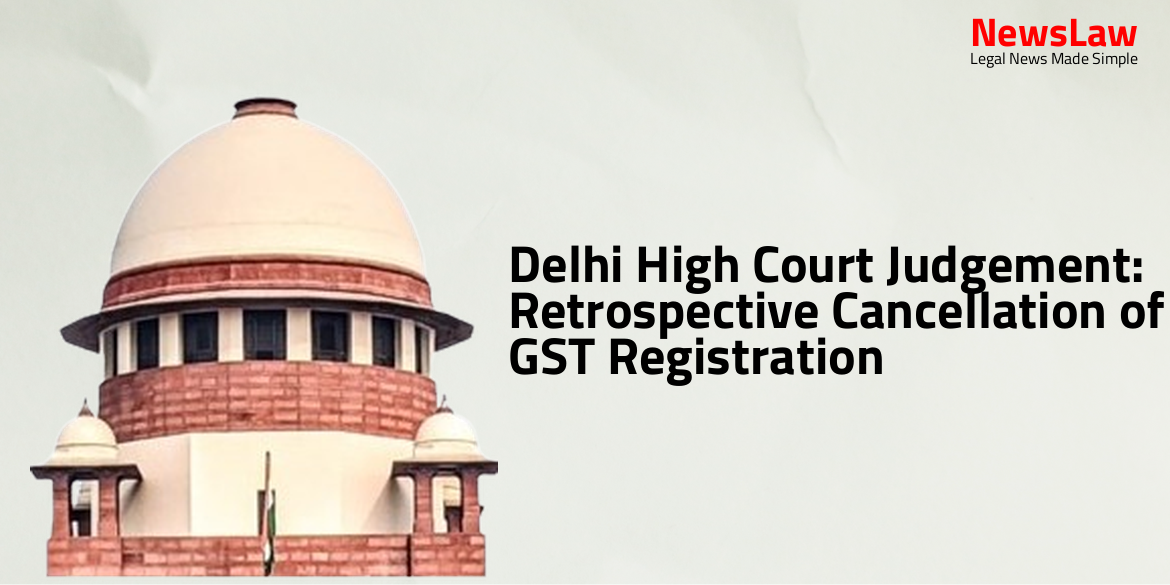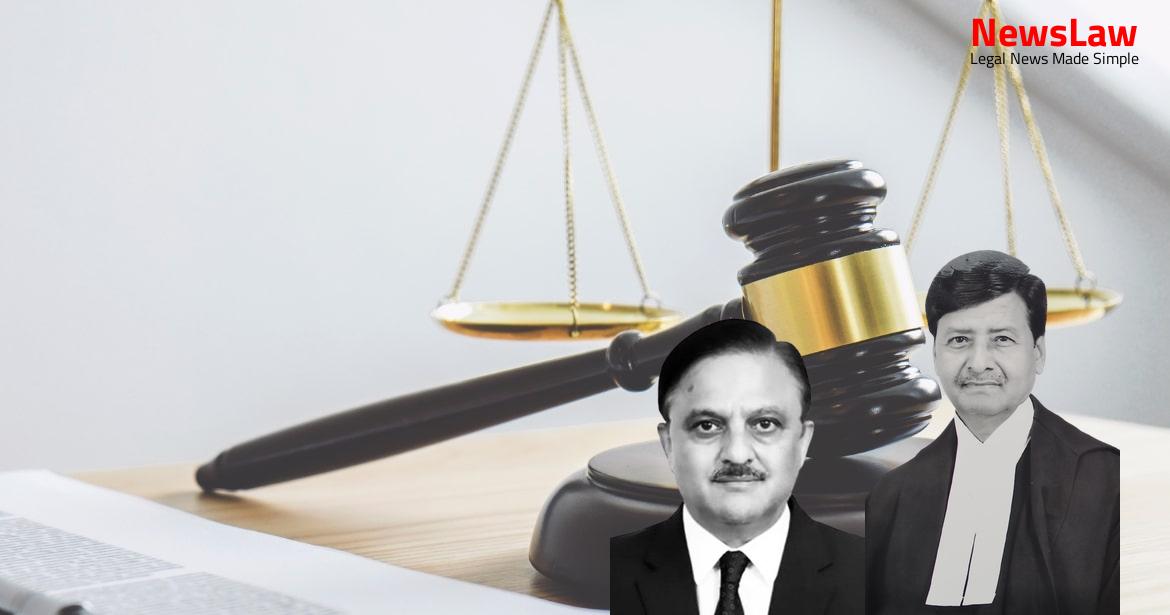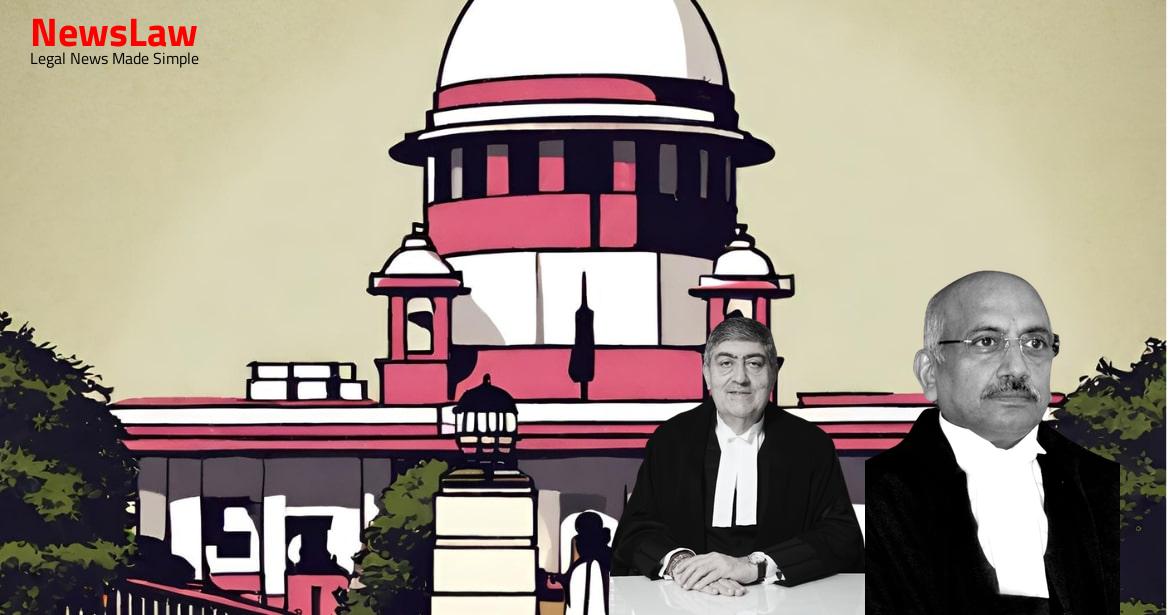Explore a nuanced legal analysis focusing on liability disputes within the realm of contract law. This case delves into the complexities of joint and several liability, agency relationships, and the application of legal principles in resolving disputes between parties. Discover key insights into the court’s evaluation of triable issues, the requirements for granting leave to defend, and the balance between expedited commercial case resolution and ensuring fair defense opportunities. Stay tuned to unravel the legal intricacies of this intriguing case.
Facts
- The High Court affirmed the decree in relation to the appellant-defendant No 2.
- The purchase orders were issued by defendant No 2 and the invoices were raised upon defendant No 2.
- Liability is joint and several of appellant/defendant no.2 with respondent no.2/defendant no.1.
- The Trial Court cited ‘IDBI Trusteeship Services Ltd. v. Hubtown Ltd.’ for applicable principles.
- The Trial Court decreed in favor of the plaintiff for a sum of Rs. 89,50,244/- with joint and several liability of the defendants.
- The High Court observed that a summary suit under Order XXXVII CPC would lie against defendant No 2 even if the cheques were issued by defendant No 1.
- The Trial Court found no triable issues raised by the defendants and denied their applications seeking leave to defend.
- The High Court affirmed the Trial Court’s decision on the maintainability of the summary suit.
- The plaintiff-respondent filed a suit under Order XXXVII of the CPC against the defendants for non-payment of dues for iron and steel products supplied.
- Defendant No. 1 represented themselves as a real estate and infrastructure development firm, while Defendant No. 2 represented themselves as a contractor working with Defendant No. 1 for a project named ‘MIST’.
- An amount of Rs. 89,50,244/- was claimed to be due against the supplies made by the plaintiff.
- The appellant argued that they had no liability towards the plaintiff as per the contract terms.
- The suit was based on written contracts with purchase orders issued by Defendant No. 2 on behalf of Defendant No. 1.
- The plaintiff demanded dues through a legal notice and filed the suit when the payment was not made.
- Defendant No. 1 issued cheques for payment, but the plaintiff did not receive any intimation to present them.
- Defendant No. 2 filed a separate application seeking leave to defend.
- The plaintiff provided evidence of supplying steel as per purchase orders raised by Defendant No. 2 for the construction project undertaken by Defendant No. 1.
Also Read: Legal Analysis on Alleged Multiple Agreements in Property Sale Case
Issue
- Two main points for determination in this appeal
- First point is regarding the plaintiff’s entitlement to maintain a summary suit under Order XXXVII CPC
- Second point is about the appellant-defendant No. 2 being declined the leave to defend
Also Read: Ensuring Maintenance Rights: Court’s Legal Analysis
Arguments
- The plaintiff contended that the defendant No 1 was trying to shift responsibility to defendant No 2.
- There were disputes between the appellant and defendant No 1, leading to pending litigation in Delhi High Court.
- The plaintiff argued that the defendant No 1 issuing cheques in their name indicated an agreement.
- Payments by defendant No 1 were made on the request of defendant No 2 due to cash flow issues.
- Goods were supplied based on purchase orders by defendant No 2, acting as an agent for defendant No 1.
- The role of the appellant-defendant No 2 was considered important in the transaction.
- The Trial Court denied leave to defend to both defendants.
- The appellant-defendant No 2 claimed no privity of contract with the plaintiff as invoices were in their name.
- Learned counsel for the plaintiff argues that the summary suit was not maintainable against the appellant-defendant No 2 in the absence of a legally enforceable debt.
- The invoices constituted written contracts, making the suit valid under Order XXXVII CPC.
- The appellant and defendant No 1 were shifting liability onto each other to evade payment.
- Merely because goods were delivered to defendant No. 1’s site, appellant cannot avoid liability as both defendants were jointly liable.
- Appellant-defendant No 2 claims the liability was solely defendant No 1’s as per the construction agreement.
- Appellant argues they were only acting as an agent of defendant No 1 and cannot be held liable for the contract.
- Reference to Indian Contract Act, 1872 and a court decision supporting the argument.
- Defendant No 1 issued cheques for part payment, constituting liability only for defendant No 1 and not appellant-defendant No 2.
Also Read: Legal Analysis: High Court’s Critique of Authority Actions
Analysis
- The defendant No. 2 contested its liability as a contractor executing work for defendant No. 1.
- Conditions can be imposed for time, mode of trial, payment into court, or furnishing security based on the plausibility of the defense.
- In cases of substantial defense, defendants are entitled to unconditional leave; even for fair and reasonable defense, unconditional leave is usually granted.
- If defense is found frivolous or vexatious, heightened conditions may be imposed, but denial of leave to defend is the exception, with granting leave as the usual rule.
- There should be a balance between expeditious disposal of commercial causes and allowing triable issues to be heard.
- High Court concluded the defense of defendant No. 1 was frivolous; however, such assertion for defendant No. 2 lacked adequate foundation.
- Grant of leave to defend is the standard rule; denial is the exception, even if conditions may be imposed.
- Admitted payments by defendant No. 1 were not considered in denying leave to defendant No. 2.
- Plaintiff’s assertion of joint and several liability of defendants supported by issued cheques.
- Defendant No. 2’s defense claiming agency relationship with no monetary liability may still be considered as a matter of defense.
- Maintainability of the summary suit under Order XXXVII CPC upheld, with the contention against it rejected.
- Question remains if defendant No. 2 is entitled to leave to defend based on the defense raised.
- High Court concluded no triable issues from defendant No. 2’s defense, labeling them frivolous and vexatious.
- The Trial Court relied on the decision in Mechelec Engineers and the High Court noted this.
- The High Court observed that the principles to be considered were those in the later decision in IDBI Trusteeship.
- In Mechelec Engineers, the Court laid down principles for consideration of a prayer for leave to defend in a summary suit.
- These principles included satisfying the court of a good defense on the merits for unconditional leave to defend.
- Raising a triable issue indicating a fair, bona fide, or reasonable defense also entitles the defendant to unconditional leave to defend.
- The appellant-defendant No. 2 should have been granted leave to defend the claim made in the suit concerning its liability.
- The impugned decree deserves to be set aside.
- The appellant has raised triable issues, particularly concerning its liability.
- The defence of the appellant cannot be said to be frivolous or vexatious altogether.
Decision
- The Court condoned a delay in depositing the required sum by four days.
- The appellant was ordered to deposit Rs. 40,00,000/- as a condition for stay of execution of the decree.
- Since the appellant is granted leave to defend, other contentions regarding liability are not addressed in this decision.
- The appeal succeeded and the judgments of both the Trial Court and High Court were set aside in favor of the appellant-defendant No 2.
- The appellant was granted leave to defend, and the deposited amount of Rs. 40,00,000/- was considered as part of the condition for leave to defend.
- The Trial Court was directed to handle the treatment of the deposited amount and proceed with the trial only with respect to the appellant-defendant No 2.
Case Title: B.L. KASHYAP AND SONS LTD. Vs. M/S JMS STEELS AND POWER CORPORATION (2022 INSC 60)
Case Number: C.A. No.-000379-000379 / 2022



